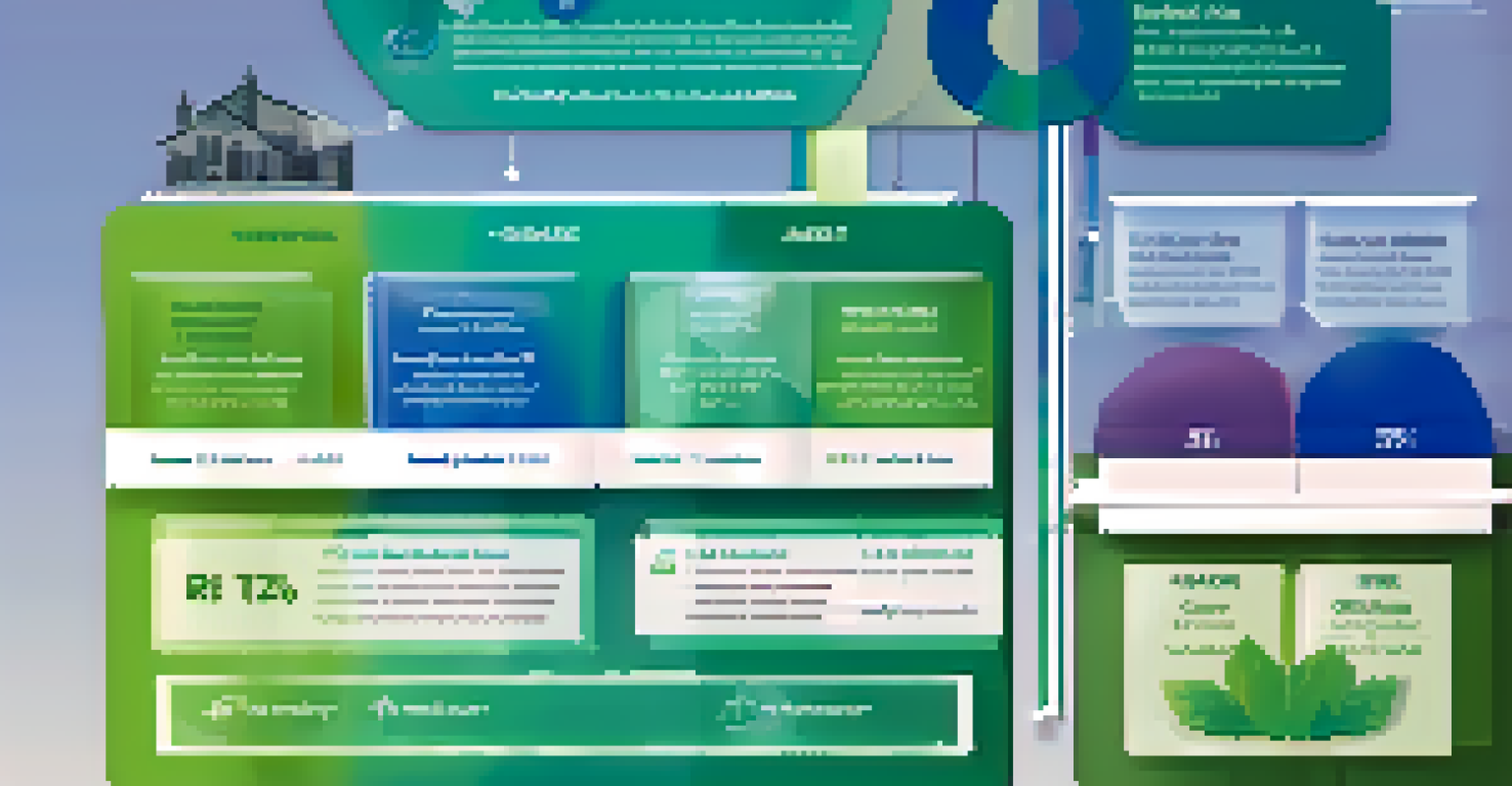How to Calculate Monthly Mortgage Payments Accurately

Understanding Mortgage Basics for Accurate Calculations
Before diving into calculations, it's essential to grasp the basics of mortgages. A mortgage is a loan specifically for buying property, where the property itself serves as collateral. This means that if you fail to make payments, the lender can take possession of your home.
A mortgage is a tool to help you buy a home, but it requires understanding and management to avoid financial pitfalls.
Mortgages typically come with specific terms, including principal, interest rate, and duration of the loan. The principal is the amount you borrow, while the interest rate is the cost you pay to borrow that money. Understanding these components is crucial, as they directly affect your monthly payments.
Additionally, mortgages can have fixed or adjustable interest rates. A fixed-rate mortgage maintains the same interest rate throughout the loan, while an adjustable-rate mortgage can change after specified periods. Knowing the type of mortgage you have will help you calculate payments more accurately.
Gathering Necessary Information for Calculations
To calculate your monthly mortgage payment, you need specific pieces of information. Start with the loan amount, which is often the home's purchase price minus your down payment. Next, note the annual interest rate and the loan term in years.

For example, if you’re looking to buy a home for $300,000 with a 20% down payment and a 4% interest rate over 30 years, your loan amount would be $240,000. Gathering these figures ahead of time will streamline your calculation process.
Mortgage Basics Simplified
Understanding key mortgage components like principal, interest rate, and loan duration is crucial for accurate payment calculations.
Lastly, don't forget to factor in property taxes and homeowners insurance, which can significantly affect your total monthly payment. Including these costs will provide a more accurate picture of your financial commitment.
Using the Mortgage Payment Formula to Calculate Payments
The formula for calculating your monthly mortgage payment is quite straightforward. It’s often represented as M = P[r(1 + r)^n] / [(1 + r)^n – 1], where M is the monthly payment, P is the loan amount, r is the monthly interest rate, and n is the number of payments.
The best way to predict your future is to create it, especially when it comes to your financial decisions.
To break it down, you first need to convert your annual interest rate into a monthly rate by dividing it by 12. For instance, if your interest rate is 4%, your monthly rate would be 0.00333 (4%/12). This conversion is a crucial step to ensure accuracy.
Next, determine the total number of payments by multiplying the number of years by 12. In our previous example, a 30-year mortgage would have 360 payments. Plugging these values into the formula will yield your monthly payment amount.
Understanding Amortization and Its Impact on Payments
Amortization is the process of gradually paying off a loan through scheduled payments over time. In the context of a mortgage, each payment goes towards both the principal and the interest. Understanding how amortization works can help you see how your payments change over the life of the loan.
At the beginning of your mortgage term, a larger portion of your monthly payment goes toward interest rather than principal. This means that while your overall payment might remain the same, the distribution changes as you pay down the loan. It’s like a seesaw, where one side gets lighter as the other gets heavier over time.
Include All Costs in Calculations
Incorporating property taxes, insurance, and PMI into your monthly payment ensures a realistic budget and avoids unexpected expenses.
Being aware of this can help you strategize your payments. For example, making extra payments toward the principal can reduce the overall interest you pay and shorten your loan term, which is a great way to save money in the long run.
Incorporating Additional Costs into Your Monthly Payment
When calculating your monthly mortgage payment, it's essential to include additional costs. Property taxes, homeowners insurance, and possibly private mortgage insurance (PMI) can significantly impact your overall payment. These costs are often bundled into your monthly mortgage payment.
For instance, if your property taxes amount to $3,600 a year and your homeowners insurance is $1,200, those figures would need to be converted into monthly costs. That adds an additional $300 to your monthly payment, which can make a difference in your budget.
Considering these costs upfront will help you avoid surprises later. By planning for these additional expenses, you'll have a clearer understanding of what you can afford when it comes to buying your dream home.
Using Online Calculators for Quick Estimates
If math isn't your strong suit, don't worry! There are plenty of online mortgage calculators that can help you estimate your monthly payments quickly. These tools require you to input the loan amount, interest rate, and term, and they do the heavy lifting for you.
Online calculators often allow you to adjust variables, such as down payment amounts and interest rates, providing instant feedback. This can be a great way to play around with different scenarios to see what fits your financial plan best.
Use Calculators for Quick Estimates
Online mortgage calculators can provide fast estimates, but it's important to factor in additional costs for a complete financial picture.
However, keep in mind that while these calculators are useful, they may not include all additional costs such as property taxes and insurance. So, it’s still essential to do your homework and factor in those elements for a more comprehensive understanding.
Consulting with a Financial Advisor for Personalized Guidance
If you're feeling overwhelmed or unsure about your calculations, consulting with a financial advisor can provide personalized guidance. These professionals can help you understand your financial situation better and suggest strategies tailored to your needs.
A financial advisor can walk you through the mortgage process, explain different loan options, and help you avoid common pitfalls. They can also assist in creating a budget that accommodates your mortgage payment and other financial goals.

Having expert advice can offer peace of mind, ensuring you're making informed decisions as you embark on this significant financial journey. After all, understanding your mortgage is crucial to achieving homeownership successfully.